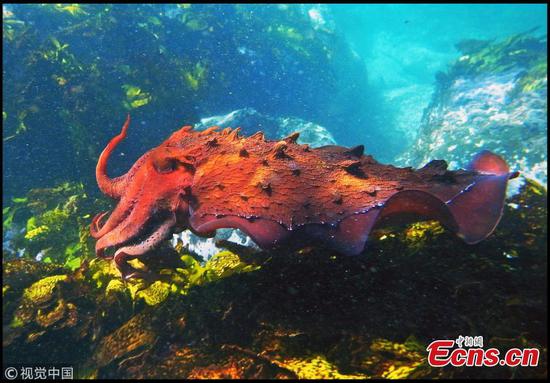A new study found out that chemical pollutants banned more than 40 years ago are driving more than half of world's killer whale population to the brink of extinction.
The whales might disappear within 30 to 50 years, the study warned.
Killer whales also known as orca, a top sea predator, have been found to have an alarming level of chemical pollutant concentration of polychlorinated biphenyls (PCB), as high as 1,300 milligrams per kilogram in the fatty tissue. Presence of even 50 milligrams per kilogram of tissue may show signs of infertility and severe impacts on their immune system among whales.
The study titled "Predicting global killer whale population collapse from PCB pollution" published in journal Science found the number of killer whales is rapidly declining in 10 out of the 19 killer whale populations investigated.
Contaminated water in Brazil, the Strait of Gibraltar, and around the UK was found to be extremely toxic for these whales. Around the British Isles, the researchers estimate that the remaining population counts are less than 10 killer whales.
Also along the east coast of Greenland, killer whales are affected due to the high consumption of sea mammals like seals. Seals and large fish such as tuna and sharks are critical accumulators PCBs and other pollutants stored in their bodies. Killer whales get a high-level PCB in their system through this food chain.
"It is these populations of killer whales that have the highest PCB concentrations and it is these populations that are at the highest risk of population collapse," researchers from Zoological Society of London (ZSL) and Aarhus University found. Killer whales that primarily feed on small-sized fish such as herring and mackerel have a significantly lower content of PCBs and are thus at lower risk of effects.
"The findings are surprising. We see that over half of the studied killer whales populations around the globe are severely affected by PCBs" maintained Jean-Pierre Desforges, a postdoctoral candidate from Aarhus University, who led the investigations.
PCBs have been in existence since the 1930s, used heavily for the production of electrical components and plastics. More than one million tons of banned chemical produced, a large portion of it ended up in oceans.
In 2004, under the Stockholm Convention, more than 90 countries committed to phasing out large stocks of PCB. The massive presence of the banned chemical, "suggests that the efforts have not been effective enough to avoid the accumulation of PCBs in high trophic level species that live as long as the killer whale does," Paul Jepson co-author of the study maintained.
"There is, therefore, an urgent need for further initiatives than those under the Stockholm Convention."
The killer whale is one of the most widespread mammals on Earth and is found in all of the world's oceans from pole to pole. But today, only the populations living in the least polluted areas possess a large number of individuals.
In the oceans around the Faroe Islands, Iceland, Norway, Alaska and the Antarctic, the prospects are not so gloomy. The killer whale populations in the region are growing, and the models predict that they will continue to do so throughout the next century.
"We know that PCBs deform the reproductive organs of animals such as polar bears. It was therefore only natural to examine the impact of PCBs on the scarce populations of killer whales around the world," said Professor Rune Dietz from the Department of Bioscience and Arctic Research Centre, Aarhus University, who initiated the killer whale studies.


















































